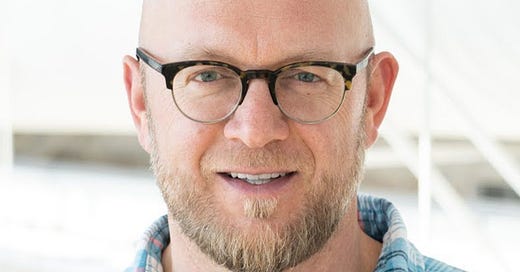This series has ranged far and wide over the past nine months, and most of my essays pertain in some way to the culture of academe. However, some of my posts tell a more focused story about leaving higher education and working through the messy middle of that transition. While the archive is still free, I thought I would share a few of those pieces, gathered here as chapters of my journey.
I’m not big on sales pitches, but you can still get a 20% discount on a paid subscription through December 31. I’ll be launching a monthly podcast in January, and your subscription will help me pay my guests a modest stipend. A subscription costs a little less per month than a single Starbucks latte, though I’d like to think that what you’re getting here has more value!
The Calling
This essay lays out the zero sum thinking that made my transition away from academe much more difficult than it had to be. I’m still wrestling with how to define my ambitions as a writer differently, so I don’t fall into Thea Kronborg’s trap, but at least I’ve identified that all-or-nothing thinking as a pitfall to avoid.
Rituals as Recovery
This piece anticipates a longer reflection on building a garden fence, perhaps the newest project tied to my transition. My weekly essay for this series is also a clear example of creating a new ceremony to process a period of disruption and change.
Leaving academe is not like sabbatical
Our family move has been stabilizing for nearly everyone else. Our oldest daughter has struggled a bit with it, as she was just forging close friendships (and enjoying sleepovers and long play dates) before we left. I thought I made the choice to move with eyes wide open, but the intensity of grief blindsided me. It can be difficult to write honestly about things like this without swerving into victim mode, and in my experience even the most progressive people have a hard time validating a conventionally masculine man’s articulation of vulnerability. But this needed to be said, and it seems to have resonated with many.
Teaching is an art, not a science
This essay veers a little from my post-academe arc, but I include it here because it circles back to my exploration of a calling. Early in my transition, I thought that my view of teaching was too idealistic, that maybe I was creating problems for myself by holding my courses to unrealistic standards. But I need to be an idealist to teach well, and this is as robust a defense of that view as I can muster.
How much “why” do you see in your workday?
I’m not sure that I ever burned out on my academic work. But by the time I resigned, the “why” of the job had eroded substantially. My critiques of branding, assessment, and other trends in the culture of higher education dovetail with this meditation.
Academe is suffering from foreign occupiers
This essay was the most successful of the year. It is my only viral post, and so far the only one that triggered an unsolicited request to republish. I don’t want to spend my life writing polemics, but this one has aged well.
How rituals help me heal from academe
This essay marks the beginning of my garden fence project and reprises some of the themes from my second chapter.
Why gardening is my religion
More on the fence project and how it fits into my view of gardening as a ritual, not a hobby.
A DIY cure for academe
This essay may promise more than it can deliver, because I still have not solved the puzzle of coming home to this new place. Nor have I fully made peace with my new professional identity. But building the fence was an expression of hope, and I hope it will bear fruit.
Once again, thank you for supporting me throughout this journey in 2022. I look forward to more conversations in the year to come.





All good stuff. A year’s worth of excellent writing on the road to recovery. It’s not an easy journey. Thank you for the insights and taking us along. May next year bring more joy, more insights and healing, wonderful new discoveries, and continued fulfillment in writing!
Hi, Joshua, I haven't had a chance to read all the essays you link to here. So I best wait to comment until then. Your story appears from these links to be quite complex over the course of this past year. Looking forward to reading the essays, as time allows. xo ~ Mary